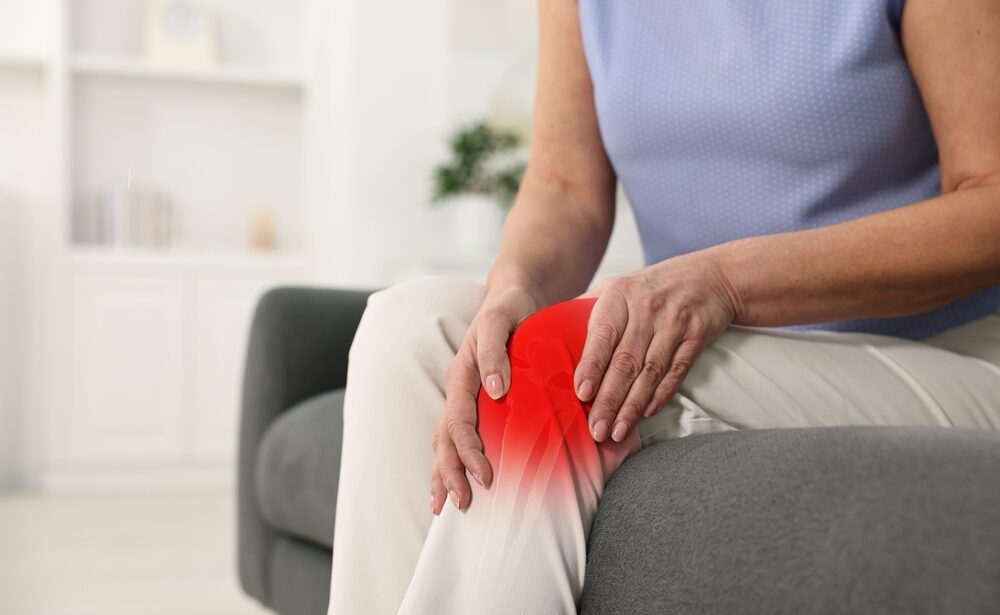Management of Early and Complicated Arthritis
Overview
Arthritis, which refers to the inflammation of one or more joints, can range from mild to severe forms. Early intervention in early-stage arthritis is essential to slow disease progression, relieve symptoms, and preserve joint function. For complicated arthritis cases—where advanced joint damage, systemic involvement, or comorbidities are present—comprehensive, multidisciplinary management is required. The goal is to control symptoms, prevent further damage, and improve quality of life through a tailored approach.
Management of Early-Stage Arthritis
Early detection and intervention are critical for slowing down arthritis progression and preventing complications.
1. Comprehensive Clinical Evaluation
- Detailed history and physical examination to identify symptoms, triggers, and joint involvement.
- Assessment of family history for predisposition to conditions like rheumatoid arthritis (RA) or osteoarthritis.
2. Laboratory and Imaging Tests
- Blood Tests: Check for inflammation markers like ESR and CRP, along with rheumatoid factor (RF) or anti-CCP antibodies.
- X-ray or Ultrasound: Assess early joint damage or synovitis. MRI may be used for soft tissue evaluation.
3. Medication Management for Early-Stage Arthritis
- NSAIDs: Ibuprofen, naproxen to relieve pain and inflammation.
- DMARDs (for Rheumatoid Arthritis): Methotrexate or hydroxychloroquine to slow disease progression.
- Analgesics: Acetaminophen for pain relief in mild cases.
4. Lifestyle Modifications and Non-Pharmacological Treatments
- Weight Management: Reducing weight decreases stress on weight-bearing joints like knees and hips.
- Physical Activity: Low-impact exercises such as swimming, yoga, and walking improve mobility and strength.
- Joint Protection Techniques: Use of braces or ergonomic aids to prevent joint strain.
5. Physiotherapy and Rehabilitation
- Early physical therapy helps maintain joint function, improve range of motion, and prevent stiffness.
- Hydrotherapy: Exercising in water reduces joint strain while building muscle strength.
6. Patient Education and Counseling
- Patients are educated on managing flares, setting realistic goals, and maintaining regular follow-ups to monitor disease progression.
Management of Complicated Arthritis
Complicated arthritis involves severe joint damage, systemic manifestations, or comorbidities such as cardiovascular disease, lung involvement, or infections. Managing such cases requires a multidisciplinary and patient-centered approach.
Medical Management for Complicated Arthritis
- Advanced Medication Regimens
- Biologic Agents: TNF inhibitors (adalimumab, etanercept) or IL-6 inhibitors (tocilizumab) for refractory rheumatoid arthritis.
- Corticosteroids: Short-term use to manage severe flares in both rheumatoid arthritis and psoriatic arthritis.
- Immunosuppressants: For autoimmune-related arthritis with systemic complications (e.g., lupus-associated arthritis).
- Pain Management
- Opioids: For severe pain that is unresponsive to other treatments (short-term use only).
- Intra-Articular Injections: Steroid or hyaluronic acid injections for advanced osteoarthritis or RA to relieve inflammation.
- Platelet-Rich Plasma (PRP) Therapy: Used to promote healing and tissue repair in advanced cases.
Surgical Interventions
- Joint Replacement Surgery: For advanced osteoarthritis or rheumatoid arthritis where joint function is severely impaired (e.g., knee or hip replacement).
- Arthroscopy: Used for debridement and to remove damaged tissues from joints in some cases of advanced arthritis.
- Synovectomy: Removal of the synovial membrane in cases of severe synovitis.
Management of Extra-Articular Complications
- Cardiovascular Monitoring:
- Manage cardiovascular risks through statins, blood pressure control, and anti-inflammatory therapy.
- Pulmonary Care:
- Interstitial lung disease in rheumatoid arthritis may require oxygen therapy or immunosuppressants.
- Renal Care:
- Monitor kidney function if patients are on long-term NSAIDs or immunosuppressants.
Rehabilitation and Physiotherapy for Complicated Arthritis
- Post-Surgery Rehabilitation:
- Physical therapy after joint replacement surgeries to restore strength and mobility.
- Occupational Therapy:
- Helps patients learn new ways to perform daily activities despite joint limitations.
- Assistive Devices:
- Use of canes, walkers, or splints to improve mobility and protect joints.
Psychological Support and Patient Counseling
- Managing Depression and Anxiety
- Chronic arthritis pain and disability often lead to psychological distress. Counseling and cognitive behavioral therapy (CBT) may be recommended.
- Support Groups and Community Resources
- Patients can benefit from connecting with others experiencing similar challenges through support groups and patient networks.
Monitoring and Preventive Care
- Regular Follow-Ups
- Monitor medication side effects, disease progression, and any new complications through scheduled follow-ups.
- Osteoporosis Prevention
- Patients on long-term steroids are evaluated for bone density, with calcium and vitamin D supplements prescribed as needed.
- Vaccination
- Ensure patients receive vaccines, such as flu and pneumonia vaccines, especially those on immunosuppressive therapies.
Final Results
- Early-Stage Arthritis:
- Early diagnosis and prompt treatment slow disease progression, reduce pain, and maintain joint function.
- Lifestyle changes and medication management help patients stay active and independent.
- Complicated Arthritis:
- With a multidisciplinary approach, even severe cases of arthritis can be managed effectively.
- Timely surgeries, advanced therapies, and comprehensive rehabilitation help restore function and improve quality of life.
- Psychological support and patient education ensure better long-term outcomes.
Our patient-centric approach aims to provide holistic care—addressing not only the physical aspects of arthritis but also the emotional and social challenges. With timely intervention, customized treatments, and proactive monitoring, we help patients regain control over their lives and improve their well-being.

